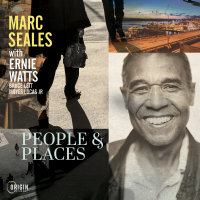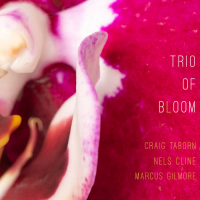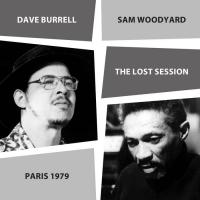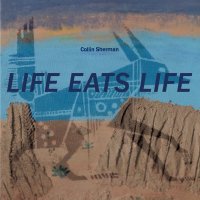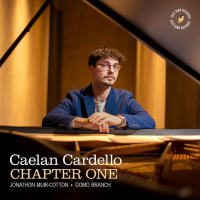Home » Jazz Articles » Multiple Reviews » Jazz Legacy Productions: Sprucing up the Old School
Jazz Legacy Productions: Sprucing up the Old School
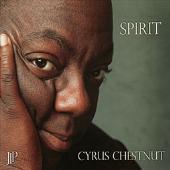 Cyrus Chestnut
Cyrus Chestnut
Spirit
Jazz Legacy Productions
2009
Cyrus Chestnut
pianob.1963
Despite Chestnut's obvious affection for the material, he doesn't let that affection hinder his renowned sense of interpretation...but he doesn't go overboard, either. Chestnut brings the blues out of "I Surrender All" and puts the stride into "Wade in the Water," and he takes "Old Time Religion" out for a lovely waltz. But primarily, Chestnut uses traditionals like "Oh How I Love Jesus" and "All Creatures of Our God and King" like a preacher uses a Bible passage in a sermon: it's a touchstone, a jumping-off point that lets Chestnut expand on his feelings about the piece and its message.
While the gospel classics are all triumphant, the secular music's success is about 50/50. 
Duke Ellington
piano1899 - 1974

Chris Potter
saxophone, tenorb.1971

Horace Silver
piano1928 - 2014
Visit Cyrus Chestnut on the web.
 Heath Brothers
Heath Brothers
Endurance
Jazz Legacy Productions
2009
When saxman 
Jimmy Heath
saxophone, tenor
1926 - 2020
Percy Heath
bass, acoustic
1923 - 2005
Albert Tootie Heath
drums
1935 - 2024
Jimmy's tenor is butter-smooth throughout this set, with most of the material written by himself. His interplay with pianist 
Jeb Patton
piano
b.1974
David Wong
bass
Modern Jazz Quartet
band / ensemble / orchestra
b.1952
The saying goes, "It's not the years—it's the miles." But there's also something to be said for how much is left in the tank. The Heath brothers' gas gauge is nowhere near "E," and they've got many miles to go.
Visit Heath Brothers on the web.
 Steve Davis
Steve Davis
Eloquence
Jazz Legacy Productions
2009
If there's anyone who's tailor-made for a label dedicated to the legacy of jazz, trombonist 
Steve Davis
trombone
b.1967
Eric Alexander
saxophone, tenor
b.1968
David Hazeltine
piano
b.1958
Jim Rotondi
trumpet
1962 - 2024
Joe Farnsworth
drums
b.1968
And why not? Manning the piano chair is none other than 
Hank Jones
piano
1918 - 2010
That said, Eloquence only reaches its full potential when Davis has more foils to joust with. Trumpeter 
Roy Hargrove
trumpet
1969 - 2018
Steve Nelson
vibraphone
b.1954
John Lewis
piano
1920 - 2001
Visit Steve Davis on the web.
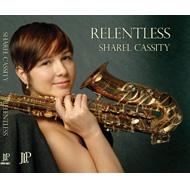 Sharel Cassity
Sharel Cassity
Relentless
Jazz Legacy Productions
2009
A few years before she got her Masters degree from Juilliard, multi-instrumentalist 
Sharel Cassity
saxophone
The opening track is titled "Say What?," apparently named for the reaction Cassity's ear-grabbing opening salvo should garner, and not just because she plays fearless, unerring soprano sax. Like all her originals, "Say What?" feels like it's been around for years, and yet it's got the brightness and energy of a newborn colt. Cassity does most of her work on alto sax, building solos with riveting designs. This cracking, substantive jazz gets great support from drummer 
E.J. Strickland
drums
Dwayne Burno
bass
1970 - 2013
Don Braden
saxophone, tenor
b.1963
Michael Dease
trombone
b.1982
Jeremy Pelt
trumpet
b.1976
Maintaining a legacy (of jazz, or anything else) doesn't stop at repeating the deeds of the past. It also requires finding people to learn from—and then build on—that past, so that the future is even better. While Chestnut, Davis, and the Heath Brothers are prime examples of jazz' past, Sharel Cassity has the potential to be one of the leaders of this genre's next generation. If John Lee can find more where she came from, the future's going to be pretty cool.
Visit Sharel Cassity on the web.
Tracks and Personnel
Spirit
Tracks: Oh How I Love Jesus; Lift Every Voice and Sing; Blessed Assurance; Wade in the Water; Lean On Me; I Surrender All; Gospel Improv #1; Old Time Religion; Bridge Over Troubled Water; Come Sunday; All by All; All Creatures of Our God and King; Peace; The Lord's Prayer.
Personnel: Cyrus Chestnut: piano.
Endurance
Tracks: Changes; Wall to Wall; You or Me; Ballas from Leaderhsip Suite; Dusk in the City; Two Tees; Autumn in New York; From a Lonely Bass; The Rio Dawn.
Personnel: Jimmy Heath: tenor sax, soprano sax (5, 8); Jeb Patton: piano; David Wong: bass; Albert "Tootie" Heath: drums; Claudio Roditi: shaker (9)
Eloquence
Tracks: Yardbird Suite; How Deep is The Ocean; Minor Contention; T.H.E. Blues; It Could happen to You; My Ship; Have You Met Miss Jones; Django; Road Song; Peedlum; Lament.
Personnel: Steve Davis: trombone; Hank Jones: piano; Nat Reeves: bass; Joe Farnsworth: drums; Roy Hargrove: trumpet, flugelhorn (3, 4, 5); Steve Nelson: vibes (3, 4, 5, 7, 8); John Lee: electric bass (9, 10, 11)
Relentless
Tracks: Say What; Still; Relentless; Call to Order; Love's Lament; Song of Those Who Seek; No Turning back; On the Nile.
Personnel: Sharel Cassity: alto & soprano sax, flute; Orrin Evans: piano; Dwayne Burno: bass; E.J. Strickland: drums; Michael Dease: trombone (2, 3, 5, 6, 8); Jeremy Pelt: trumpet (4, 6, 7); Thomas Barber: flugelhorn (2, 6, 8); Andres Boyarsky: tenor sax (3, 6, 8); Don Braden: alto flute (2)
Tags
Comments
PREVIOUS / NEXT
Support All About Jazz
 All About Jazz has been a pillar of jazz since 1995, championing it as an art form and, more importantly, supporting the musicians who make it. Our enduring commitment has made "AAJ" one of the most culturally important websites of its kind, read by hundreds of thousands of fans, musicians and industry figures every month.
All About Jazz has been a pillar of jazz since 1995, championing it as an art form and, more importantly, supporting the musicians who make it. Our enduring commitment has made "AAJ" one of the most culturally important websites of its kind, read by hundreds of thousands of fans, musicians and industry figures every month.



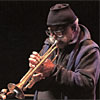
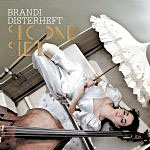

 Buy Now
Buy Now





